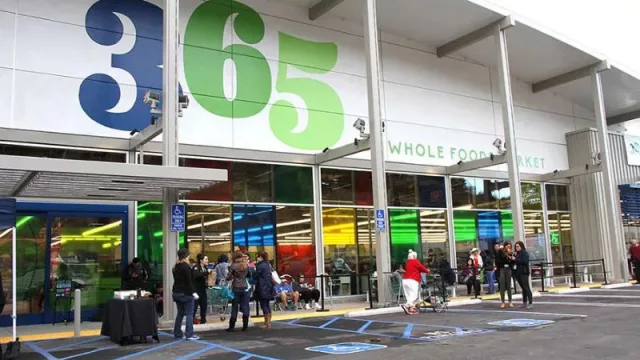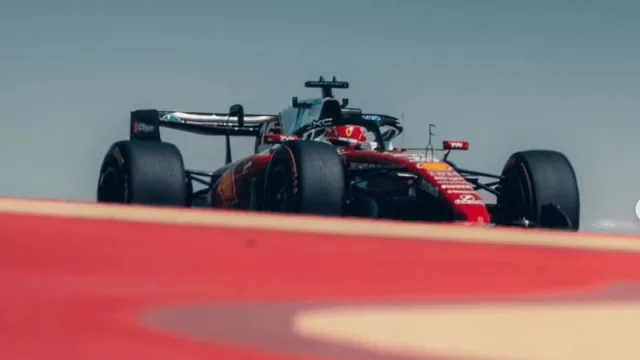How 365 by Whole Foods Changed the Game
This product line and store concept, designed to appeal to Millennials and conscious consumers, has become a prime example of how major retailers are redefining organic food commerce in the U.S., LATAM, and beyond.
Want to discover how this initiative impacted the market, what technological innovations it introduced, and what role Amazon played in the story? Keep reading!
Quick Tips: IN Miami Micro-Notes — Key Insights on the Rise of Low-Cost, High-Tech Stores
What is 365 by Whole Foods?
It’s Whole Foods Market’s private label launched in 2015 to offer organic foods at more accessible prices, with a focus on sustainability and technology. Originally physical stores, today the term also refers to private-label products available in Whole Foods supermarkets and on Amazon.
When and how did Amazon acquire Whole Foods?
In August 2017, Amazon announced the purchase of Whole Foods for $13.7 billion — one of the biggest acquisitions in retail history. Since then, Amazon has integrated Whole Foods into its digital ecosystem, fueling exponential growth and transforming the healthy food sector.
How many Whole Foods stores are there today?
By the end of 2023, Whole Foods operated around 500 stores across major U.S. cities, including Miami, New York, Los Angeles, and Houston. The expansion continues strongly, with new formats and openings in international markets like Canada and the UK, reaching 535 stores in 2025.
Why is Whole Foods growing so fast?
Its strategy combines high-quality organic foods, sustainability, digital innovation, and a strong presence in growing urban markets. The Amazon merger has amplified its reach, offering services like delivery, app shopping, and digital loyalty programs.
What’s the role of 365 in this strategy?
Initially, 365 was a line of low-cost physical stores and products focused on tech, sustainability, and customer experience. Although Amazon decided to rebrand 365 stores into more traditional Whole Foods locations in 2019, the private label concept and affordable product focus remain core to Amazon and Whole Foods’ ongoing offerings, both online and in-store.
The Birth and Evolution of 365: A Disruptive Strategy in Organic Food Retail
1. Origins and Concept:
In 2015, Whole Foods launched "365 by Whole Foods Market", a private label aimed at offering organic foods at prices that appeal to young, eco-conscious, urban consumers. The first store opened in May 2016 in Los Angeles, during a period when the healthy food market was booming but still needed more affordable options.
2. Tech & Operational Innovations:
This format broke away from traditional retail models, emphasizing digitalization and sustainability:
-
Digital labels and mobile apps for communication and reward programs.
-
Tech stacks to cut costs, like customers scanning products from pallets and labeling produce with self-generated codes.
-
Refrigerators using CO₂ to reduce energy consumption and emissions.
3. Market Expansion & Impact:
Between 2016 and 2018, over 13 stores opened across the U.S. in cities like LA, Portland, Seattle, Texas, and New York. The strategy successfully attracted young, health-conscious, eco-aware consumers.
Amazon’s Acquisition of Whole Foods: What Changed?
In August 2017, Amazon’s $13.7 billion acquisition of Whole Foods radically reshaped the grocery retail landscape:
-
Integration into Amazon’s digital ecosystem, enabling online shopping and home delivery.
-
The 365 brand, initially a standalone format, began to be integrated into Amazon’s digital offerings, boosting private-label and low-cost product lines.
-
Continued expansion of Whole Foods, now with over 500 U.S. stores, especially in key markets like Miami, NYC, LA, and Houston.
Why Is Whole Foods Growing So Rapidly?
Its success lies in providing high-quality organic foods in urban locations, with a hybrid model combining physical stores and digital services, plus a strong focus on sustainability and tech — elements Amazon has supercharged.
Lessons & Legacy for Businesses
Innovate in tech and customer experience: Digital tools, apps, and self-service systems were key in the rise of 365 stores and the revitalization of Whole Foods.
Sustainability & social responsibility: Eco-efficient practices and organic product offerings have been key differentiators.
Flexibility & adaptation: Amazon’s acquisition proved that strategies must evolve with market trends and new industry players, always with a future-oriented mindset.
Whole Foods in 2025: A Global Expansion & Commitment to Quality
Whole Foods continues to lead worldwide in natural and organic foods, with over 535 locations across the U.S., Canada, and the UK, expanding actively in 2025. The company reports opening six new stores this year in various countries, including five in the U.S. and one in London.
Highlights include stores in Las Vegas, NYC’s East Village, Boca Raton, Falls Church, and Doylestown. In September 2024, they launched Whole Foods Market Daily Shop in NYC’s Upper East Side — a compact concept designed for urban consumers seeking fresh, high-quality products in smaller spaces.
In 2025, they also reopened in Chelsea, London — their first store in the UK since 2014 — further strengthening their international presence. Whole Foods maintains strict standards: no trans fats, high-fructose corn syrup, or over 300 processed ingredients. Their personal care and beauty products are also free of phthalates, parabens, and microbeads, reaffirming their commitment to health and wellness.
What Can We Learn?
That innovation in products, processes, and customer experiences can transform even the most traditional retail. Sustainability and technology are now essential levers for success in the food industry.
Inspiration for your business in the digital and sustainable era:
The stories of 365 and Amazon’s acquisition of Whole Foods show how disruptive innovation, tech, and sustainability can revolutionize a market. While the 365 format was restructured, its legacy lives on in private-label offerings and Amazon’s digital strategy. For leaders and entrepreneurs in LATAM, Miami, the U.S., and Spain, the lesson is clear: embrace innovation, integrate technology, and prioritize sustainability — the future belongs to those who adapt and reinvent.
FAQs
Why did 365 stores fail despite their innovation?
Because rapid expansion and Amazon’s acquisition in 2017 shifted focus, limiting their original growth. Innovation requires long-term continuity and adaptation.
What impact did 365 have on the organic food market?
It propelled the accessible organic foods trend, advanced retail digitalization, and strengthened private-label offerings — influencing the entire industry.
What’s the future of smart, sustainable supermarkets?
AI, IoT, and eco-efficient practices will be key to reducing costs, enhancing customer experience, and meeting the demands of increasingly responsible, digital consumers.
Suscribete:
-
Subscribe for free to receive the most strategic, agile, and valuable insights at: https://infonegocios.miami/suscribite-al-newsletter
Infonegocios NETWORK: 4.5 million Anglo-Latinos united by a passion for business.
Contact Infonegocios MIAMI:
marcelo.maurizio@gmail.com
Read Smart, Be Smarter!
-
Uruguay: https://infonegocios.biz
-
Argentina: https://infonegocios.info
-
Paraguay: https://infonegocios.com.py
-
Madrid: https://infonegocios.madrid
-
Barcelona: https://infonegocios.barcelona












Tu opinión enriquece este artículo: